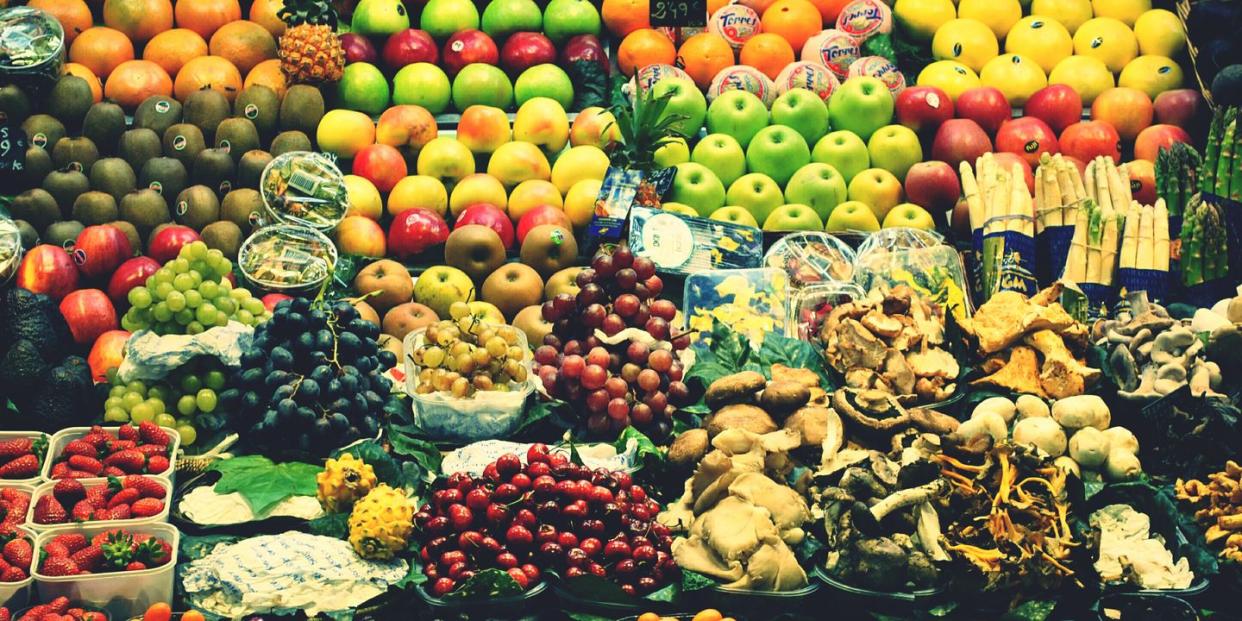Eating Enough Fruits and Vegetables Can Prevent Millions of Deaths Each Year

According to new research presented at the Nutrition 2019 conference, not getting enough fruits and vegetables has been shown to cause millions of cardiovascular-related deaths worldwide.
You should aim to get around 300 grams of fruit per day and 400 grams of vegetables (including legumes) per day.
You already know that nutrition is a big part of cycling. Yes, you have to put the miles in, but fueling the right way is equally as important to your performance. But new research shows that not getting the right nutrients-or enough of them-can have some serious consequences outside of riding: A lack of fruits and vegetables has been linked worldwide to millions of cardiovascular-related deaths.
In the study, which was presented at Nutrition 2019, the American Society for Nutrition annual meeting, researchers looked at diet surveys and food availability data from 113 countries-or about 82 percent of the world’s population-and estimated the average amount of fruits and vegetables people consumed. Then, they looked at the data surrounding general causes of death in each country and also specifically the cardiovascular risk related to not getting enough fruits and vegetables.
Their findings? Each year, about 1 in 7 people worldwide die from things like heart disease and strokes caused by not eating enough fruit, and about 1 in 12 people die due to the same reasons from not eating enough vegetables.
Specifically, not eating enough fruit caused about 1.3 million deaths from stroke and 520,000 deaths from coronary heart disease-the narrowing of the arteries in your heart, which could lead to a heart attack-per year around the world. Not eating enough vegetables caused about 200,000 deaths from stroke and 800,000 deaths from coronary heart disease.
Most of these deaths occurred in South Asia, East Asia and Sub-Saharan Africa, where fruit and vegetable consumption is generally the lowest.
“Fruits and vegetables are a modifiable component of the diet that can impact preventable cardiovascular deaths globally,” study coauthor Victoria Miller, Ph.D., postdoctoral research fellow at the Friedman School of Nutrition Science and Policy at Tufts University, told Bicycling.
The reason? Both fruits and vegetables are good sources of nutrients like fiber, potassium, magnesium, antioxidants, and phenolics, which have been shown to reduce blood pressure and cholesterol, she said.
“Minimally processed foods like fruits and vegetables also improve the health and diversity of good bacteria in the digestive tract,” said Miller. “People who eat more of these foods also are less likely to be overweight or obese, lowering their risk of cardiovascular disease.”
[Build a killer midsection in the kitchen for powerful, effortless miles on the road with Eat for Abs!]
According to Miller and her colleagues, you should aim to get around 300 grams of fruit per day and 400 grams of vegetables (including legumes) per day.
“Eating up to 800 grams of fruits and vegetables per day-equivalent to 8 servings-has been shown to reduce the risk of cardiovascular disease and all-cause mortality, with modest additional benefit for intake above this level.”
('You Might Also Like',)

